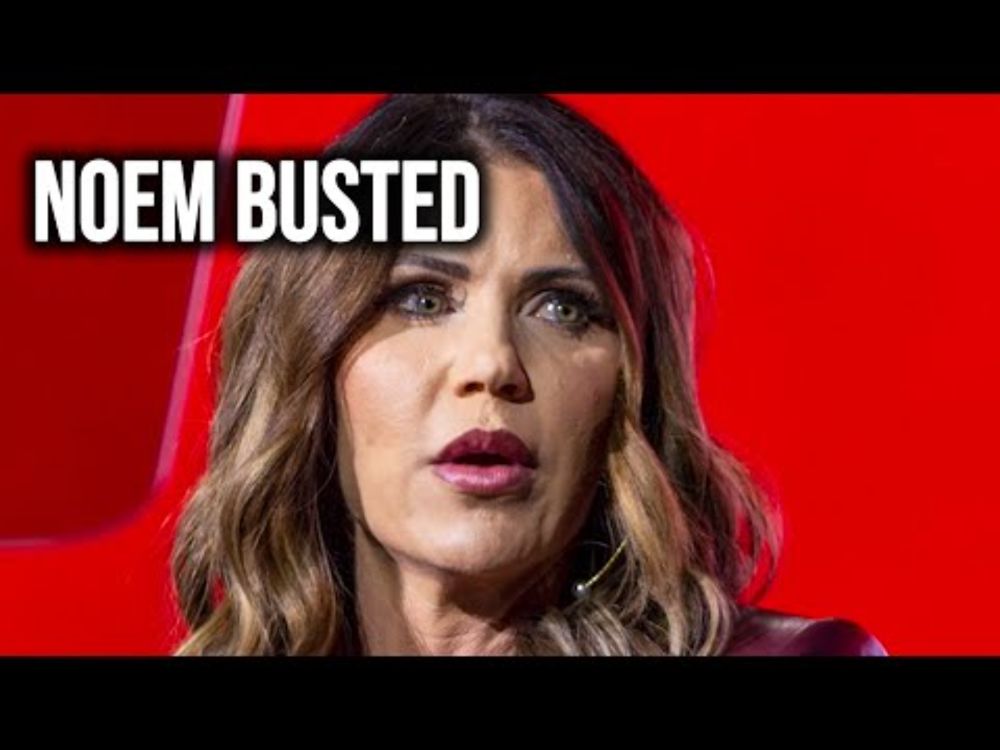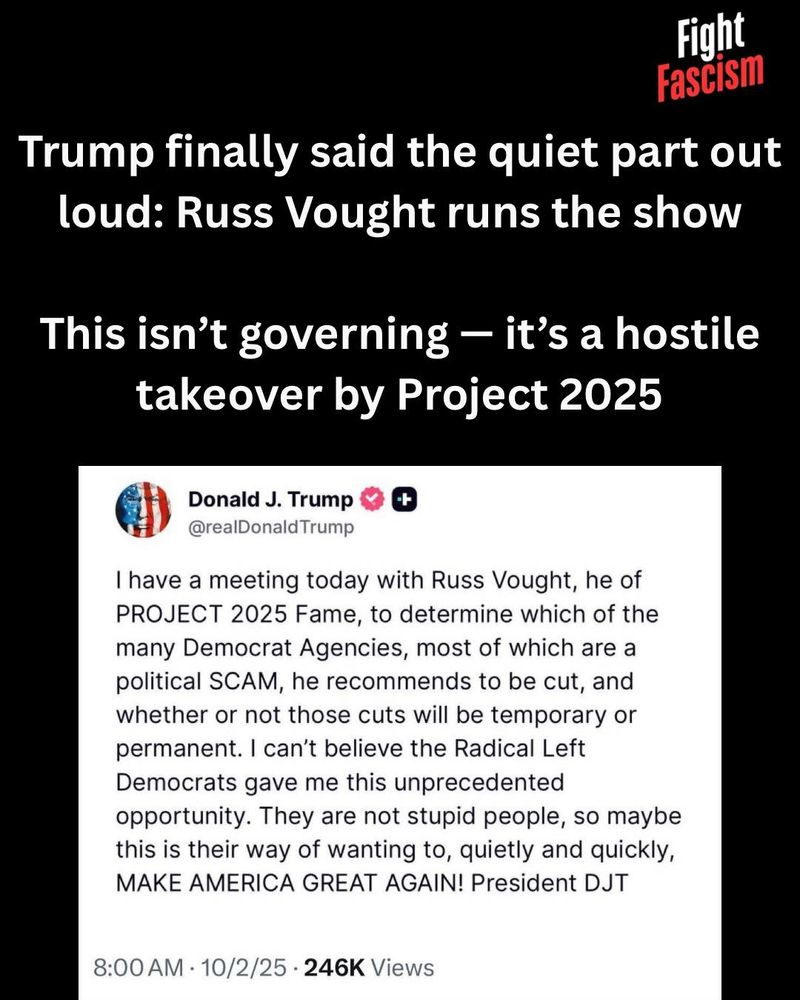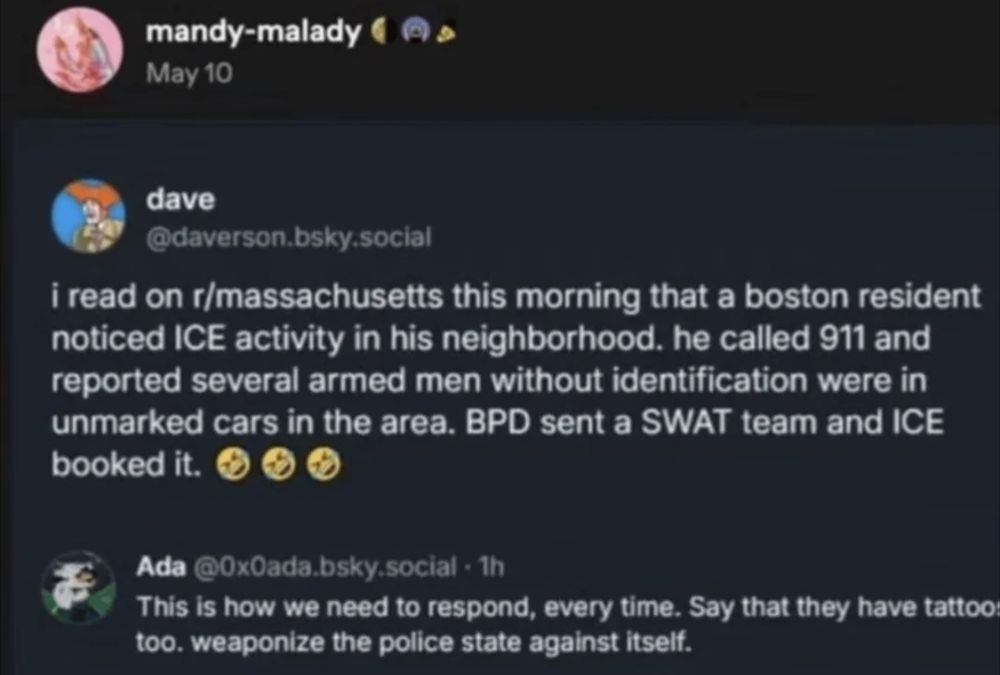WTAF is wrong with the Navy! OMG!!!🤬🤬🤬🤬🤬
05.10.2025 23:33 — 👍 2 🔁 0 💬 0 📌 0Rich
@bluewave04.bsky.social
Retired Middle School Teacher. 37 years with those crazy kids! Let’s Go Brewers! Go Pack Go! Go Big Red! 💙 LETS GO! 💙
@bluewave04.bsky.social
Retired Middle School Teacher. 37 years with those crazy kids! Let’s Go Brewers! Go Pack Go! Go Big Red! 💙 LETS GO! 💙
WTAF is wrong with the Navy! OMG!!!🤬🤬🤬🤬🤬
05.10.2025 23:33 — 👍 2 🔁 0 💬 0 📌 0 05.10.2025 14:15 — 👍 444 🔁 144 💬 18 📌 5
05.10.2025 14:15 — 👍 444 🔁 144 💬 18 📌 5

Great. Another fascist hedge fund douchebag to hate. The Billionaire Behind Trump’s Deal for Universities www.nytimes.com/2025/10/03/u...
04.10.2025 08:52 — 👍 7 🔁 3 💬 1 📌 0 05.10.2025 10:56 — 👍 876 🔁 366 💬 25 📌 10
05.10.2025 10:56 — 👍 876 🔁 366 💬 25 📌 10

Homeland Security Secretary Kristi Noem's lies over changes she made to relief funding protocols gets completely blown apart as reports reveal how she will suddenly fast-track long-awaited disaster aid money as soon as a big donor asks.
youtu.be/1kXfrgirJF8?...




Monster!
05.10.2025 16:02 — 👍 5 🔁 6 💬 0 📌 0We know who lynched Trey. There’s blood on those white hoods! #notohate
04.10.2025 22:04 — 👍 686 🔁 349 💬 32 📌 19 05.10.2025 15:53 — 👍 4001 🔁 1270 💬 289 📌 90
05.10.2025 15:53 — 👍 4001 🔁 1270 💬 289 📌 90

“The current AI boom would simply be impossible if tech companies had to pay the same tariffs that car manufacturers or homebuilders currently face.
“ .. a tacit admission that a full-scale trade war would kill America’s golden geese.”
@josephpolitano.bsky.social
www.apricitas.io/p/the-tariff...
And they used a Fing Blackhawk helicopter on top of it? Illegally
05.10.2025 16:04 — 👍 3 🔁 0 💬 0 📌 0
ICE and other federal agents conducted a violent, middle-of-the-night raid on an apartment building in Chicago — just days after Trump said the military should go after “the enemy within.” He and his cronies are building a police state piece by piece. https://youtu.be/5zrye_p-EPI?si=VinP3uxFa9_JiN8X
05.10.2025 16:01 — 👍 1512 🔁 555 💬 86 📌 17🤬🖕🤬🖕🤬🖕🤬🖕🤬🖕🤬
05.10.2025 16:03 — 👍 1 🔁 0 💬 0 📌 0 05.10.2025 11:23 — 👍 112 🔁 56 💬 7 📌 2
05.10.2025 11:23 — 👍 112 🔁 56 💬 7 📌 2

Laura Ingraham: “Cannabis is the most dangerous drug in America right now”
05.10.2025 15:21 — 👍 426 🔁 82 💬 152 📌 33He sure as hell didn’t win. Ask Elon the “fixer!” Frump even admitted it before the election was over. He knew how to “fix” and change the voting machine results. Biggest caper in American History. I am VERY scared about future elections. You should be too. 💙💙💙💙
05.10.2025 15:18 — 👍 0 🔁 0 💬 0 📌 0
During the 2024 campaign, voters were repeatedly told that democracy in America was under threat.
He won despite striking at the heart of American democracy by trying to steal the 2020 election, then fomenting a violent insurrection when he didn’t get his way.
www.huffpost.com/entry/us-dem...
 05.10.2025 10:50 — 👍 959 🔁 500 💬 70 📌 34
05.10.2025 10:50 — 👍 959 🔁 500 💬 70 📌 34

This is how it's done.
Masked armed individuals refusing to identify themselves could just be pretending to be police in the facilitation of their criminal activity.
You don't know if they're armed kidnappers or not.
More of this please.

Mike is a real slimy one. AOC takes him down!
04.10.2025 23:21 — 👍 773 🔁 210 💬 12 📌 6
Seriously 💥
05.10.2025 14:55 — 👍 79 🔁 45 💬 2 📌 0
ITS ABOUT TIME
Prosecutors in Tallahassee are convening a grand jury relating to the Hope Florida Foundation, reinvigorating a scandal that has engulfed the charity spearheaded by Casey DeSantis, the governor’s wife.
www.miamiherald.com/news/politic...


The Oglala Sioux Tribe boldly banned Gov. Kristi Noem from Pine Ridge, standing up against her harmful rhetoric linking reservations to cartels. Eight of nine tribes followed—sending a clear, proud message of protecting their communities with courage and dignity.
apnews.com/article/sout...
The janitor forgot to put him in the trash can POS!🤬🖕🤬
05.10.2025 14:44 — 👍 6 🔁 0 💬 0 📌 0An aspiring tyrant in the making…
Stephen Miller was always a POS. Here he is in high school, already looking middle-aged, giving a student government speech:
“Am I the only one who is sick and tired of being told to pick up our trash when we have plenty of janitors who are paid to do it for us?”

Anther Republican finds a way to blame me while misspelling my name.😂
“Hand it to Mark Elias and the Democratic lawyers, they were way ahead of the game. With Covid in full force,” they pushed states to liberalize the rules for mail-in ballots, which ended up accounting for 43% of all votes.
Greta Thunberg being eligible for the Nobel Prize is not only a slap in the face to the Orange Baby, but it would be poetic justice for a woman of peace and caring to win out over a man of hate and conflict. She demonstrates the deep instinct of humanity when money is not involved.
04.10.2025 15:45 — 👍 891 🔁 226 💬 26 📌 10